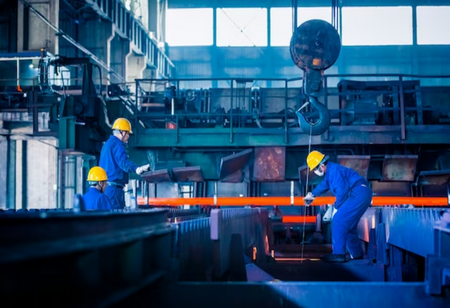
China faces a slew of economic challenges, including a real estate crisis, deflation, subdued consumer confidence, and a stock market downturn. Despite these obstacles, it's uncertain whether another nation could surpass China as the leading global manufacturing powerhouse.
According to Eurizon strategists Stephen Jen and Joana Freire, there's scant evidence of de-globalization, even amidst deteriorating US-China trade relations marked by tariffs and geopolitical tensions. While countries like Vietnam and Mexico have seen increased trade activity, China remains a dominant player in global trade, accounting for about 15% of global exports.
Although China's share of US imports has declined significantly since 2017, from 22% to 14%, it remains the world's largest exporter. Beijing has adeptly navigated trade challenges by investing heavily in countries preferred by the US for imports, such as Mexico and Vietnam. This strategy involves exporting components to these countries for final assembly, thereby avoiding US tariffs on Chinese-assembled products.
Despite rising export prices in countries like Mexico and Vietnam, China's manufacturing capacity far outstrips its competitors. With a manufacturing labor force of over 212 million, China surpasses the combined manufacturing capacity of several major economies.
While some speculate about a potential shift away from China, smaller countries may not be equipped to replace China as manufacturing hubs. Jen and Freire suggest that China could remain the "next China" due to its unmatched manufacturing capacity.
However, China's domestic economy faces headwinds, including a sluggish post-pandemic recovery, a property market downturn, and declining foreign direct investment. These factors have contributed to deflationary pressures and underperformance in Chinese stocks.
Despite these challenges, Beijing could leverage supportive policies to attract foreign investment and sustain its position as the world's largest economy. The world's perception of China, coupled with its domestic policies, will play a crucial role in shaping its economic trajectory moving forward.

